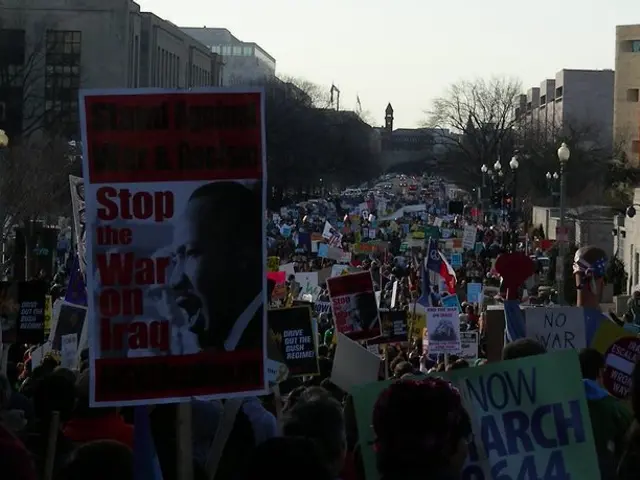Trump decisions to prolong the tariff ceasefire with China for 90 days, thus halting a potential increase in duties.
US-China Tariff Truce Extended for Another 90 Days
The US and China have agreed to extend their tariff truce for another 90 days, halting planned tariff increases and maintaining the current complex tariff arrangement. The extension was announced on August 11, 2025, and comes after high-level talks in London and Geneva.
The tariff truce was due to expire on Tuesday. US President Donald Trump has extended a pause on sky-high tariffs on Chinese goods for another 90 days. This decision follows two days of discussions in Stockholm in July.
The extension may clear the path for Trump to visit China to meet with President Xi Jinping in late October. Both countries are focusing on sectors like battery technology, defense, and semiconductors for future collaboration.
The tariff truce maintains current high tariff rates (up to 55%) without increases for at least 90 days. The tariffs include a 10% baseline tariff, 20% "fentanyl" tariffs, and 25% Section 301 tariffs originally imposed during Trump's first term.
Regarding rare earth exports, a critical issue in bilateral trade, China continues to limit supplies. The country has selectively resumed exports only to three major US automakers for a few months' supply, while significantly limiting export quantities and certain magnet exports. This constrains US military and electric vehicle manufacturing sectors. Despite US requests and offers of easing some export restrictions as gestures of goodwill, China has maintained its tight controls, aiming to restrict US defense industry access to rare earths.
US Trade Representative Jamieson Greer has expressed optimism about discussions with China over rare earth flows. Negotiators from both sides reached a preliminary agreement to keep the arrangement last month in Sweden. The US has approved shipments of a semiconductor used for artificial intelligence that it had previously blocked.
The US-China trade relationship remains highly strained, with progress limited to temporary tariff freezes and minor goodwill gestures rather than a broad, stable agreement. Sales of advanced AI chips remain an issue, despite Trump's decision to relax export controls.
India is diversifying its trade strategy as the US drives a hard bargain, but this is a separate topic and not directly related to the US-China tariff issue. Trump on Sunday had called on Beijing to quadruple purchases of American soybeans. China was summoned by Chinese authorities in late July to discuss alleged security vulnerabilities related to Nvidia's H20 chips.
The US and China are discussing maintaining a stable trading relationship, and the extension of the tariff truce may be a step towards achieving this goal. However, the fundamental issues over trade deficits, intellectual property, industrial policy, and strategic supply chains remain unresolved. The strategic rivalry between the two nations continues, with incremental, tactical agreements amid persistent fundamental tensions.
Read also:
- Court petitions to reverse established decision on same-sex marriage legalization
- Trump's enforcement actions in Washington D.C.: Insights from the political arena
- Chinese Ambassador issues stern message to India regarding Trump's tariffs in midst of escalating trade feuds
- Aircraft collides with another one on the runway during landing at Montana airport, igniting flames








